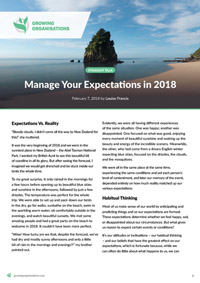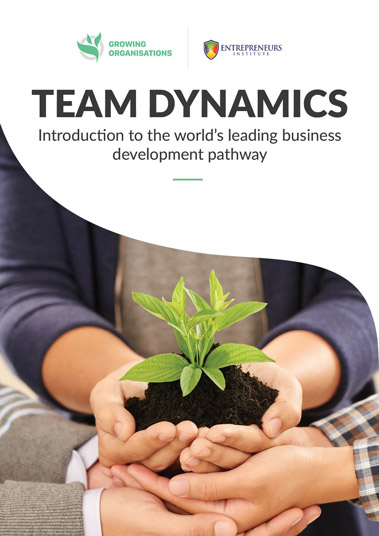Expectations vs. Reality
“Bloody clouds. I didn’t come all the way to New Zealand for this!” she muttered.
It was the very beginning of 2018 and we were in the sunniest place in New Zealand – the Abel Tasman National Park. I wanted my British Aunt to see this beautiful bit of coastline in all its glory. But after seeing the forecast, I imagined we would get drenched and be stuck inside our tents the whole time.
To my great surprise, it only rained in the mornings for a few hours before opening up to beautiful blue skies and sunshine in the afternoons, followed by just a few drizzles. The temperature was perfect for the whole trip. We were able to set up and pack down our tents in the dry, go for walks, sunbathe on the beach, swim in the sparkling warm water, sit comfortably outside in the evenings, and watch beautiful sunsets. We met some amazing people and had a great party on the beach to welcome in 2018.
“Wow! How lucky are we that, despite the forecast, we’ve had dry and mostly sunny afternoons and only a little bit of rain in the mornings and evenings?!” my brother pointed out.
Evidently, we were all having different experiences of the same situation. One was happy; another was disappointed. One focused on what was good, enjoying every moment of beautiful sunshine and soaking up the beauty and energy of the incredible scenery. Meanwhile, the other, who had come from a dreary English winter expecting blue skies, focused on the drizzles, the clouds, and the mosquitoes.
Each person’s level of contentment, and later our memory of the event, depended entirely on how much reality matched up to our various expectations.
Habitual Thinking
Most of us make sense of our world by anticipating and predicting things and so our expectations are formed. These expectations determine whether we feel happy, sad, or disappointed about our circumstances. But what gives us reason to expect certain events or conditions?
It’s our attitudes or inclinations – our habitual thinking – and our beliefs that have the greatest effect on our expectations, which is fortunate because, while we can often do little about what happens to us, we can control our own thinking. This is how various people can experience the same conditions and yet think, feel, and act differently – and how some people fall apart after adversity while others become stronger. It is possible to develop a more optimistic and resilient mindset by noticing the thoughts that enter and leave your mind when experiencing a situation and then challenging the negative thoughts by finding positive evidence and arguments opposing them.
“Our attitudes and beliefs have a more powerful effect on our sense of happiness than our circumstances”.
FOMO
We are subjected to endless messages every day that tell us what we should expect out of life. Perfect bodies. Perfect relationships. Perfect careers. Social media and celebrities lead us to believe that others have achieved these goals and so we may wonder What’s wrong with me?
We also have more choice than ever. While choice can be a good thing, too much choice can lead to higher stress and ‘FOMO’ (Fear Of Missing Out). No matter what we choose, we imagine we could have got something better. When we search Google for the ‘best’ options, we take on the experiences of strangers, and we set them as our own expectations, making ourselves vulnerable to huge disappointments if reality turns out different from how we imagined or hoped.
Expectations vs. Aspirations
It’s good to aim high and stretch ourselves but if we don’t celebrate our small achievements and be grateful for the many good things that come our way, we will be inclined towards low-self-esteem, anxiety, and constant disappointment. We’ll miss the sunny afternoons and we’ll see only the rain.
- When you have high expectations and the outcome is worse: You’ll be frustrated.
- When you have low expectations and the outcome is better: You’ll be grateful.
This doesn’t mean we shouldn’t have aspirations. While expectations become demands that grip us, aspirations are hopes and wishes that remain flexible and resilient and serve to inspire us. Expectations limit our options yet aspirations open our minds to alternative ways of fulfilling our desires.
“The key to happiness is letting each situation be what it is instead of what you think it should be.”
Imagine a world without constant unrealistic expectations dragging us down. We might welcome reality, accept it, and enjoy it for what it is. We might feel more gratitude rather than resentment. We might feel the happiness of being in the moment.
Take Control
For 2018, take back control of who sets your expectations – be critical, be skeptical, verify, switch off the ads, question your use of social media and check your thinking habits.
Instead of setting yourself impossibly high new year resolutions or thinking about what should happen this year, or how your life is supposed to be, and being a slave to your expectations, why not try something different? Live in the moment, go with the flow and enjoy just ‘being’.
Ultimately, if you’re going to set expectations, base them on reality, particularly in the small things, and clarify your larger aspirations based on your real purpose and desires – your ‘why’.
Take time out regularly to think through and to consciously and intentionally adjust your expectations to match reality and select your aspirations in various aspects of life. Make this your new habit.
If things don’t turn out exactly as you wish, accept it, reflect on your next steps, change course if necessary, and be content with what is.
As the saying goes, happy people are not those who have the best of everything but the ones who make the best of everything they have.
Manage Your Expectations in 2018:
1. Become aware of expectations you are allowing to form.
2. Understand the beliefs behind your expectations.
3. What are your real needs in the situation? Are there other ways to meet them?
4. Is your expectation a reasonable or likely outcome?
5. Regularly review your expectations and adjust them accordingly.
6. Stay flexible: What other options do you have?
7. Accept and be grateful for ‘what is’.

ABOUT THE AUTHOR
Louise Francis is our programme manager and a facilitator at Growing Organisations.
For more information on how you can challenge and develop thinking styles and responses to build mental toughness and resilience, contact the Growing Organisations office.




